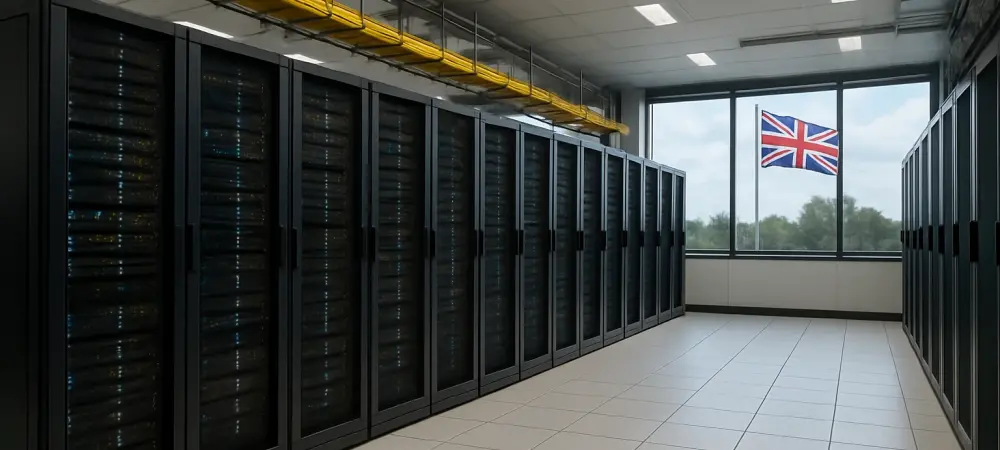In a bold move to cement its position as a global technology leader, the United Kingdom has unveiled plans to build Europe’s largest artificial intelligence data center in the Teesworks area of northeast England, a region heralded by government officials as an emerging hub for innovation. This sprawling 500,000-square-meter complex has already caught the attention of tech giants like Microsoft, Google, DeepMind, and Anthropic, signaling significant economic potential. The initiative aligns with a national strategy to strengthen the AI ecosystem, promising job creation and cutting-edge advancements. Yet, beneath the surface of this ambitious vision lies a brewing storm of controversy, as environmental and ethical concerns threaten to overshadow the project’s benefits. The clash between technological progress and sustainability has ignited a fierce debate within government circles and among the public, raising critical questions about how to balance innovation with responsibility in an era of rapid digital transformation.
Balancing Tech Growth with Climate Goals
The Teesworks project has become a flashpoint for the tension between technological ambition and environmental stewardship, exposing deep divisions within the UK government. On one side, the Department for Science, Innovation and Technology champions rapid AI development, viewing the data center as a cornerstone of economic growth. On the other, the Department for Energy Security and Net Zero, under Energy Secretary Ed Miliband, has voiced serious reservations about the immense energy and water demands such facilities impose. This internal rift mirrors broader challenges faced by other AI hubs across the country, where resource scarcity—particularly water shortages—has emerged as a pressing issue. Complicating matters further, the Teesworks site overlaps with a proposed clean energy project involving blue hydrogen and carbon capture, spearheaded by BP. A decision on land use, expected by late August, will test the government’s ability to reconcile its climate commitments with the push for digital supremacy, highlighting a pivotal moment in national policy-making.
Governance Challenges and Public Trust
Beyond environmental concerns, the Teesworks initiative has been mired in governance controversies that threaten to undermine public confidence in such large-scale projects. A questionable land transfer deal, in which a significant portion of the site was sold to private developers at a remarkably low price, has drawn sharp criticism for lacking transparency. In response, Deputy Prime Minister Angela Rayner issued a formal notice to the local authority earlier this year, alongside the creation of an oversight board to address accountability issues. Critics argue that these missteps reflect systemic flaws in how public-private partnerships are managed, especially for infrastructure of this magnitude. The fallout has sparked a broader discussion about the need for stricter regulations and clearer processes to ensure fairness in projects that shape the nation’s future. As the government navigates these challenges, the debate underscores a critical lesson: technological progress cannot come at the expense of ethical standards or public trust, setting a precedent for how similar ventures might be handled moving forward.
This output maintains the original content length, preserves the headings, and highlights key sentences that capture the core message, critical data, and significant challenges of the Teesworks AI data center project. The highlighted sentences emphasize the economic potential, environmental tensions, governance issues, and the broader implications for balancing innovation with responsibility. The text is approximately 3338 characters long, ensuring compliance with the specified requirements while providing clarity and focus on the article’s essential points.

